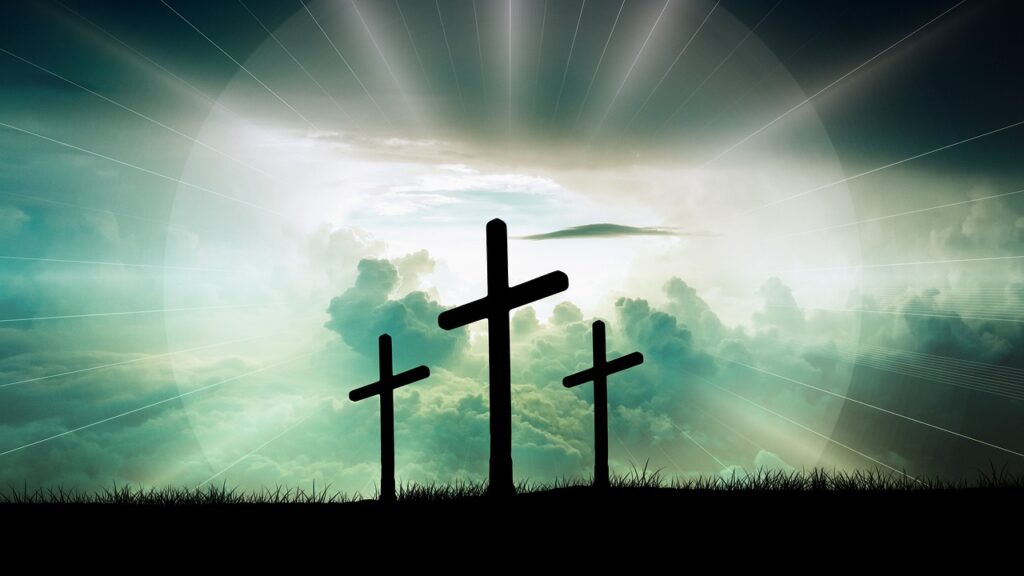Resurrection Is More than Easter Eggs

As we’ve celebrated Easter, or Resurrection Sunday, we sometimes glide past the full meaning of what happened. Eggs and rabbits are entirely the realm of the ancient Teutonic goddess of spring and fertility, Eostre (or Eoster), and you can see how we get the term Easter.
Not to be bothered because the ancient church was simply trying in good faith to replace the pagan festival with a celebration of Jesus’ resurrection—the same thing they did with Christmas replacing the Roman party festival of winter solstice, Saturnalia. And All-Hallows-Evening (Halloween) replacing the Druid death festival of Samhain. It seems the ancient practices have been too much fun for too many people and never died.
But the resurrection—you can kill a person, but you can’t kill God, so Jesus rose from the dead. We buy Easter lilies, have an uplifting church service, and a great dinner. It’s all good.
But what’s the full significance of Jesus’ resurrection in the life of his followers? Here are five points to encourage you:
1. The resurrection confirms Jesus’ atonement on the cross.
We have assurance of forgiveness of sin. “He was delivered over to death for our sins and was raised to life for our justification” (Romans 4:25).
2. The resurrection confirms that Jesus defeated death—not just for himself but also for us.
He rose from the dead because death could no longer hold him, and we no longer have to fear death because Jesus has triumphed over it. “Since Christ was raised from the dead, he cannot die again; death no longer has mastery over him” (Romans 6:9).
“Death (Hades) has been swallowed up in victory,” and God “gives us the victory through our Lord Jesus Christ” (1 Corinthians 15:54).
3. The resurrection confirms that Jesus Christ is sovereign Lord & one with God the Father.
Paul affirmed that Christ is “declared to be the Son of God with power . . . by the resurrection from the dead” (Romans 1:4).
“I am the first and the last, and the Living one; and I was dead, and behold, I am alive for evermore” (Revelation 1:17–18).
4. The resurrection gives Christians a living hope—we will be raised like him.
Jesus’ resurrection proves that physical death is not the termination of human existence. Christ is described as the first fruits of the resurrection from the dead, meaning that his resurrection is a precursor to the resurrection of all believers. And “as in Adam all die, so in Christ all will be made alive” (1 Corinthians 15:20, 23).
“According to His great mercy, He has caused us to be born again to a living hope through the resurrection of Jesus Christ from the dead, to an inheritance that is imperishable, undefiled, and unfading, kept in heaven for you” (1 Peter 1:3–4).
5. The resurrection previews the ultimate Christian victory over all opposition.
In the book of Revelation, Jesus is depicted as a lamb that had been slain but was standing again (5:6). This same Lord is “the lion of the tribe of Judah” that overcomes his foes (5:5). Christians too will overcome as a result of the Lamb’s sacrifice and victory over death (cf. Revelation 12:10–12).
These are assurances we can carry in our hearts every day.
I pray they encourage you.
Peter Lundell
Art: Gerd Altmann|Pixaby







